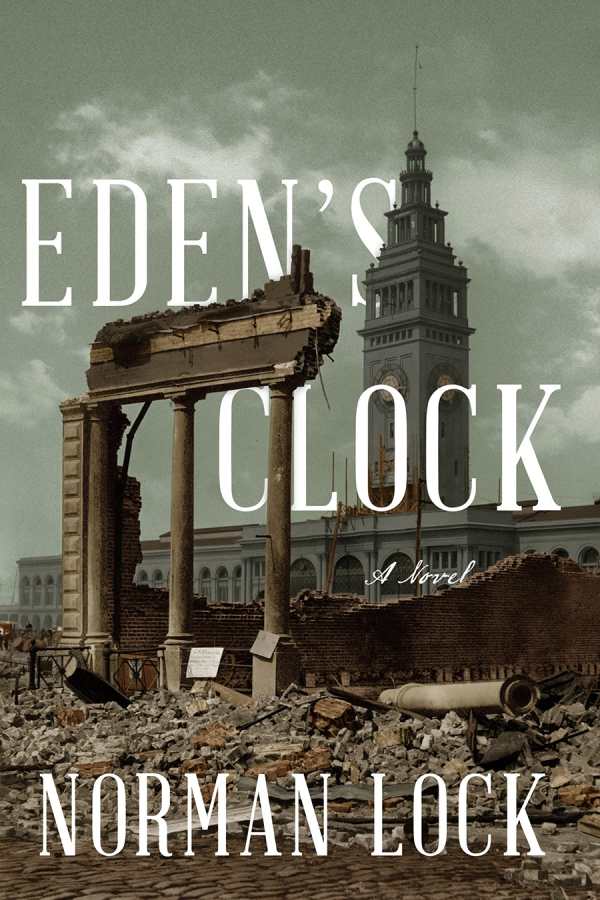Eden's Clock
The American Novels
In Eden’s Clock, Norman Lock’s concluding stand-alone volume of The American Novels series, a Civil War veteran and clocksmith travels to San Francisco, arriving on the evening before the city’s massive 1906 earthquake.
In 1905, sixty-two-year-old Frederick is a widower and resident of Dobbs Ferry, New York. Unable to speak due to an injury received at Gettysburg, Frederick communicates using a slate board and chalk. A respected repairer of timepieces, he accepts an enticing commission to regulate San Francisco’s towering Embarcadero clock.
Frederick’s trip is derailed, however, when he is accused of suspicious activities and thrown into Manhattan’s Tombs. Amid rising anarchistic tumult, Frederick finds that his late wife’s progressive suffragist inclinations labeled him as a potential troublemaker. His inability to speak at length in his own defense complicates his legal troubles.
After his release, further disruptions lead to Frederick’s detour aboard a cargo steamer and shipwreck on South Carolina’s Edisto Island. When Frederick finally boards a California-bound train, he contends with a shifting backdrop of passengers and sights as the locomotive rushes “toward the end of the American continent.”
Frederick is an engaging and emergent narrator whose peculiar odyssey is detailed in poetic and elastic terms. He encounters prison reformers, Gullah people, charismatic thieves, and a companionable woman determined to hear Enrico Caruso in concert. Like the great clock counting down to disaster, the novel’s tension builds along with Frederick’s ultimate San Francisco arrival. Thrilled to see author Jack London at the Palace Hotel bar, Frederick feels weary enthusiasm after his disjointed trip. His happiness is short-lived: the city soon becomes a “convulsing planet” overwhelmed by the devastating earthquake.
Entwining individual and collective fates, the immersive, propulsive historical novel Eden’s Clock sprawls across the early twentieth-century US.
Reviewed by
Meg Nola
Disclosure: This article is not an endorsement, but a review. The publisher of this book provided free copies of the book to have their book reviewed by a professional reviewer. No fee was paid by the publisher for this review. Foreword Reviews only recommends books that we love. Foreword Magazine, Inc. is disclosing this in accordance with the Federal Trade Commission’s 16 CFR, Part 255.

